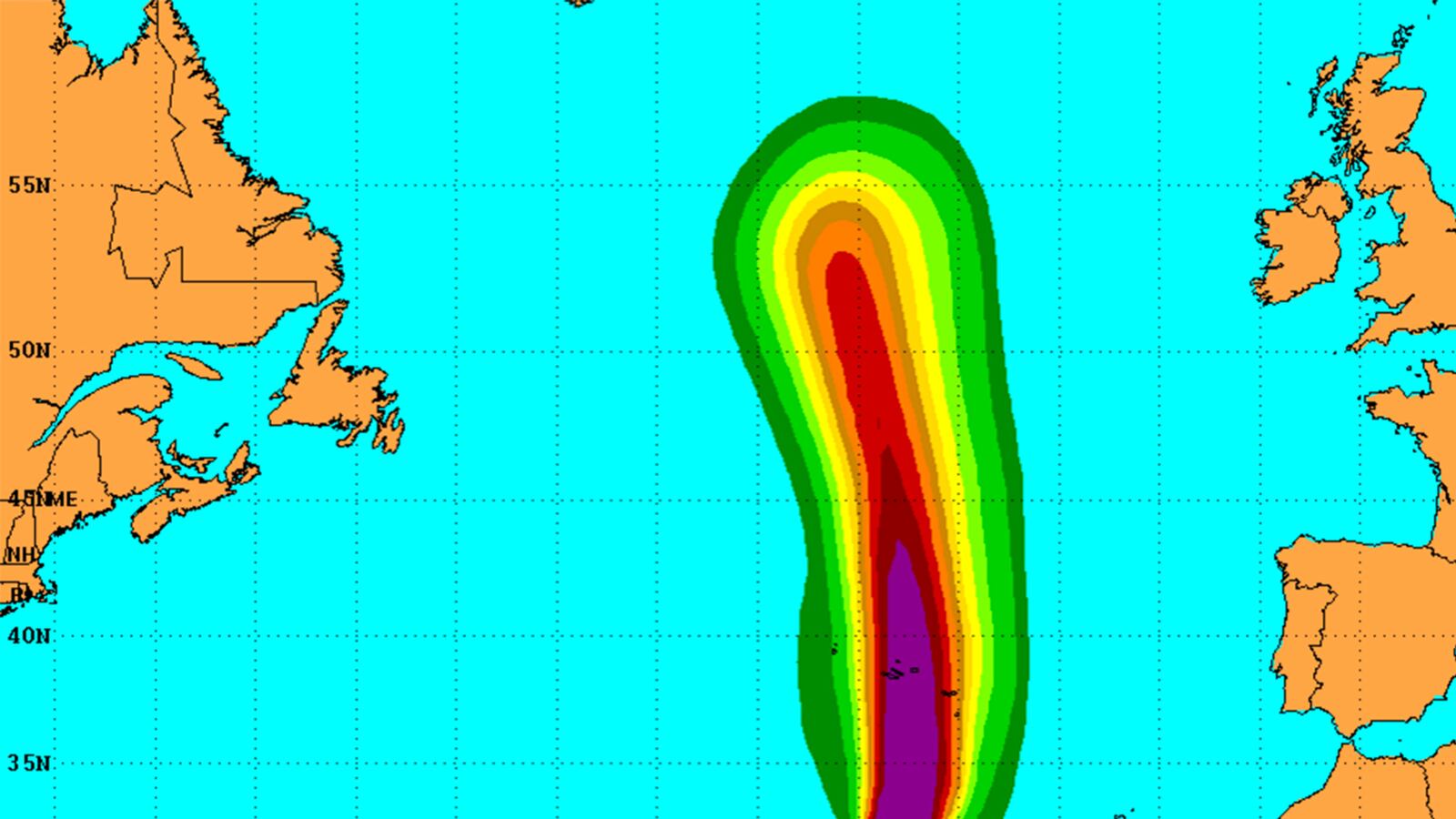The Azores, a cluster of islands nearly 1,000 miles west of Portugal, are bracing for Hurricane Alex.
According to an update from the U.S. National Hurricane Center early Thursday afternoon, Alex has sustained winds of 85 mph, making it the strongest Atlantic hurricane ever recorded in January. The NHC also stated that the storm is about 400 miles south of the Azores, with hurricane-force winds, dangerous storm surge and up to seven inches of rain expected to impact the islands Friday. A hurricane warning is in effect for the central Azores, and a tropical storm warning is in effect for the eastern islands.
While not unprecedented, hurricanes in the Atlantic in January are extremely rare—Alex is the first hurricane to form in the Atlantic in January since 1938. The only other January hurricane on record in the Atlantic is Hurricane Alice, which formed in December of 1954 and continued into January of 1955.
Clark Evans, a professor at the University of Wisconsin-Milwaukee, studies tropical cyclones. According to Evans, hurricanes are particularly rare this time of year because the conditions in which they typically form, including warm waters, low vertical wind shear and abundant moisture, are absent.
Alex was able to form in part because of an area with relatively low vertical wind shear for this time of year. Hurricanes need to build vertically as they form, and if wind shear, which is the change in wind direction and speed with height, is high, it’s more difficult for the vertical formation to occur.
As for the warm waters needed for hurricane development, “sea surface temperatures near Alex are running about 1ºC above normal for this time of year…but still much lower than normally seen with a developing hurricane,” said Evans. Relatively cold temperatures higher in the atmosphere, however, “allowed for the storm to make relatively efficient use of what energy it could extract from the underlying ocean.”
The location of Alex’s formation is also rare, for any time of the year. Eric Blake, a hurricane specialist at NHC, tweeted today that this is only the second hurricane to ever form north of 30ºN and east of 70ºW.
Attributing extreme events like Hurricane Alex to climate change, El Niño, or another source of climate variability is a major research area for scientists.
Though many might assume climate change a likely culprit for January hurricanes, Dennis Feltgen, spokesperson for the NHC, pointed out via email that though sporadic, tropical storms and hurricanes formed in the Atlantic this time of year throughout the 20th century. And while water temperatures in the area around Alex are above average, according to Evans, similar conditions during January in 1997 and 2004 did not produce a tropical storm.
Scientists are also studying how warming waters and climate change may influence long-term trends in hurricane formation and strength. Evans is a co-author on a paper out this month in the Journal of Climate that found no meaningful long-term trend in Atlantic hurricane season length over the period 1979-2014. Evans said that variability on shorter time scales appears to influence season length more than any longer-term influence.
While the study looked at conditions that may extend season length, they did so for the months immediately bordering hurricane season (May/June and October/November), not for conditions in January. Because there are so few storms this time of year, little data exists with which to do rigorous scientific analysis.
When asked whether Alex might be an extension of the hurricane season that technically ended Nov. 30, or an early start to the 2016 season beginning June 1, Evans said, “I would not classify it as either. I think Alex is an outlier more than anything else.”





